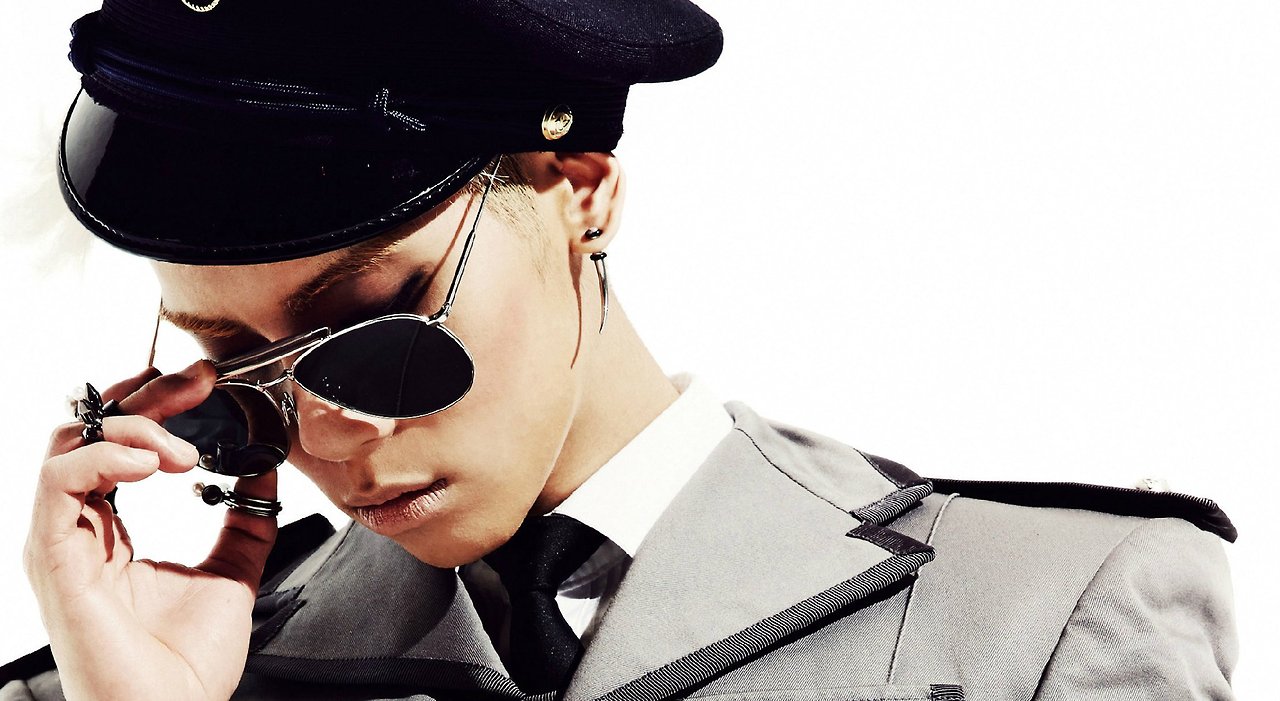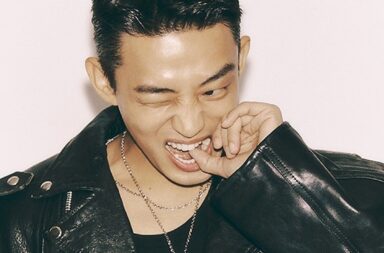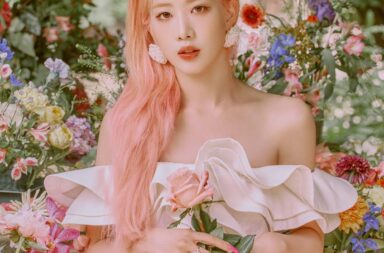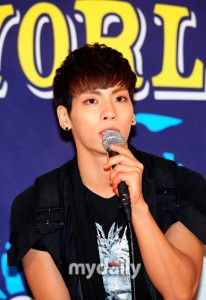 SHINee‘s Jonghyun has once again created a stir for his bold, politically charged comments. This time around, the statements in question concerned the oft-discussed, never fully resolved issue of the treatment of comfort women.
SHINee‘s Jonghyun has once again created a stir for his bold, politically charged comments. This time around, the statements in question concerned the oft-discussed, never fully resolved issue of the treatment of comfort women.
In a closing comment on his MBC FM4U Blue Night radio show on the 1st of March, he said, “Every year on March 1st, I think of our grandmothers who were forced into sex slavery by the Japanese soldiers. Never mind the attitude of the Japanese government, I’m curious as to whether our government has any intention of solving this issue. I heard that there are about 55 remaining survivors and I wonder if we will be able to see them smiling brightly before they pass.”
The issue of welfare for comfort women in Korea (or the lack thereof) is a contentious one — certainly not the first contentious issue Jonghyun has used his celebrity status to bring to light. This site has previously discussed Jonghyun’s use of the social media platform Twitter to demonstrate his support for South Korea’s sexual minorities; he has also previously demonstrated an awareness of global issues by changing his Twitter profile picture in August 2013 to one concerning the political instability in Egypt.
Clearly, the lead singer of SHINee isn’t shying away from voicing his opinions on hot-button issues. If anything, he seems to have become even less inhibited and more assertive, voicing his own personal opinions on socio-political issues in his official idol activities as well.
SHINee as a group has had a history of some fairly colourful concepts, but Jonghyun the individual seems to be building up a reputation of respectability and intellectual awareness with the socio-political commentary that goes beyond the usual declarations of everlasting love for fans and thanks to everyone from everywhere that we tend to hear from idols.
As members of the K-Pop fandom, we know that it would be fighting a losing battle to suggest that a good deal of K-Pop isn’t superficial or heavily reliant on the Pretty. Heck, it’s a tough enough job convincing our uninitiated friends that some of our oppas can actually sing. This isn’t helped by how idols are very much reliant on an image loaded with heart signs, winks and the ubiquitous buing-buing: it’s all fluffy affection and not a lot of intellectual substance.
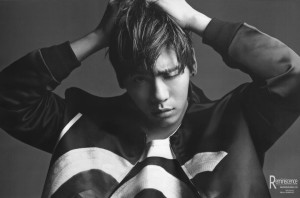 All of this renders Jonghyun’s socio-political commentary a refreshing change, and has done Jonghyun’s personal image quite some good. One would imagine that it would be easy to be wrapped up in the bubble that is the glitz and glamour of celebrity life, and K-Netizens are calling him, among other things, “respectful”, a new “national idol” and a “political celebrity”.
All of this renders Jonghyun’s socio-political commentary a refreshing change, and has done Jonghyun’s personal image quite some good. One would imagine that it would be easy to be wrapped up in the bubble that is the glitz and glamour of celebrity life, and K-Netizens are calling him, among other things, “respectful”, a new “national idol” and a “political celebrity”.
With this positive attention, however also comes detractors: Jonghyun has also receved flak for “running his mouth” on issues in which he is out of his depth. Some comments demanded that he stop masquerading as an enlightened citizen, the implication being that he is an uneducated celebrity pretending to be politically aware while receiving love and money from Japanese fans.
He has also been accused of ignorance, because his comments were reported after a slew of headlines came out about after the ROK’s Minister of Foreign Affairs Yoon Byung-se made mention of the comfort women issue in UN discussions (to clarify: he made the comments before this news came out). Netizens commented that Jonghyun had to “deal with the facts before criticising the government”.
Overall, it seemed like the response outside of the Shawol fandom to Jonghyun the “political celebrity”‘s remarks was a split one. There were people who applauded him for using his platform as an idol star to bring attention to hot-button social issues of the day, but there were also those who accused him of being an ignorant singer who had overstepped his boundaries as a celebrity and was just ranting about things he had no place commenting on.
It’s interesting to examine here the place of the “political celebrity”, which seems to be epitomise the ‘damned if you do it, damned if you don’t’ quandary. If celebrities don’t bring to light social issues or take part in community service or generally show some sort of participation in activities beyond their day jobs, they’re self-centred and frivolous. If they do, they’re overstepping their roles as entertainers who, by virtue of their place in society, have no right to say comment on these issues, or they’re just doing good to put up a show. It’s hard to win when any good you do is both seen as a given and condemned.
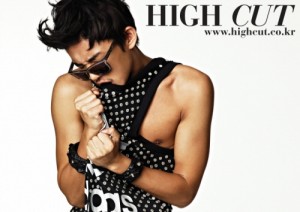 Building up a reputation as a “political celebrity” also comes with elevated expectations for general behaviour in all thins. Yoo Ah-in, for instance, received much attention for tweeting a strongly worded comment on Ahn Chul-soo‘s withdrawal from the 2012 presidential race: “The words about unification are all trite”.
Building up a reputation as a “political celebrity” also comes with elevated expectations for general behaviour in all thins. Yoo Ah-in, for instance, received much attention for tweeting a strongly worded comment on Ahn Chul-soo‘s withdrawal from the 2012 presidential race: “The words about unification are all trite”.
When criticised for his comments and perceived overstepping of his boundaries as one who works to entertain, he replied hard-hittingly: “I saw the wrongs. I saw everything new. Do celebrities not get a vote? Should celebrities only upload selcas on their twitters? I want what I want and I feel what I feel. I felt that my vote counts and that is why I thought a long time about it and that is why I wrote what I wrote.” This series of tweets drew so much attention that Ahn Chul-soo himself actually replied to this.
However, after building up such a reputation, Yoo received even more criticism for his impending enlistment in the Seoul Police Special Promotions unit, which is seen as a “softer option” to, say, joining the marines. Netizens expressed disappointment that after he had made so many well-publicised “respectful comments” about political issues, he went ahead and joined what is viewed by many in South Korea to be a celebrity police unit.
(Note: while the Seoul Police Special Promotions unit is also open to non-celebrities, the association of celebrities such as Lee Je-hoon, Park Ki-woong and now Yoo Ah-in with a non-combat unit focused on public education has drawn comparisons in the ROK to the “celebrity soldier” unit that was recently disbanded.)
Clearly, there are expectations to being branded a “political celebrity”, and the accusations can come fast and furious when there appears to be the slightest disjunct between the public image the celebrity in question has built up and his personal decisions. While his reasons for joining the Special Promotions unit are unclear, what is clear is that his image has taken a beating because of his decision to enlist in it. The South Korean public takes military service very seriously, and it’d be best for any male celebrity who actively comments on socio-political issues to just take the hard route and join an actual combat unit.
The bottomline on political celebrities: are they overstepping their boundaries as entertainers? Should they just stay within the safety zones of aegyo, beautiful faces and catchy pop tunes? Is wanting to be a celebrity and wanting to offer intelligent personal commentary on socio-political issues a pipe-dream? My personal take on the issue: keep truckin’, Jonghyun. When celebrities speak, people listen by default. If they’re going to raise issues that need to be brought into the limelight time and again, I’d say go for it.
(Daum, Jiji Press, My Daily, Nate, Images via EBS, Esquire, High Cut, L ‘Officiel Hommes, My Daily)
